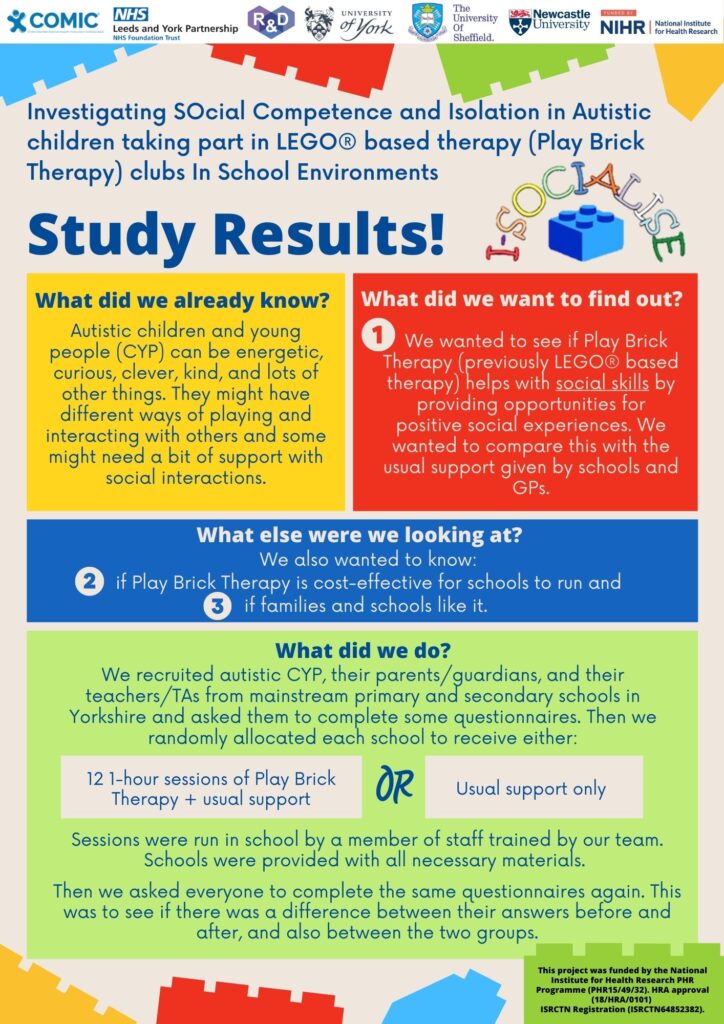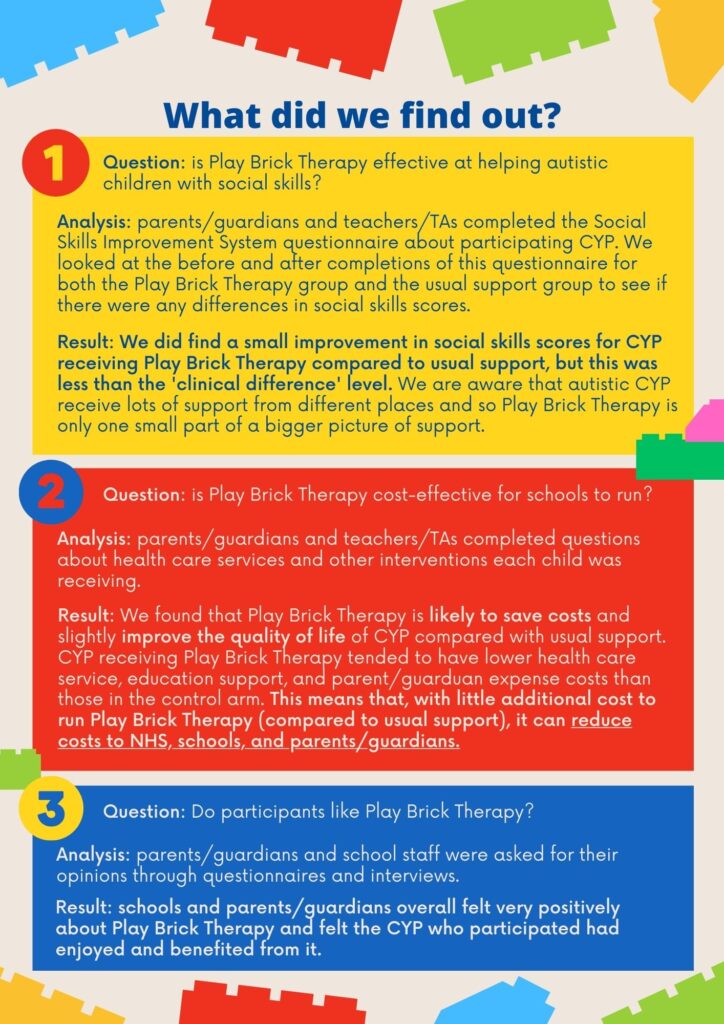New study published on Play Brick Therapy
I-SOCIALISE Play Brick Therapy trial with autistic children
The Child Oriented Mental Health Innovation Collaborative (COMIC) at the Leeds and York Partnership NHS Foundation Trust and the University of Sheffield Clinical Trials Research Unit are thrilled to announce that the results of the I-SOCIALISE trial have now been published in Autism (https://doi.org/10.1177/13623613231159699) and the NIHR Journals Library (https://doi.org/10.3310/VGTR7431).
This research involved 250 autistic children in 98 mainstream schools and tested Play Brick Therapy to help children and young people engage with each other and have fun. It was a randomised controlled trial, meaning each school was randomly chosen (like flipping a coin).
Play Brick Therapy (previously referred to as LEGO® based therapy) is a new activity that provides interesting and fun social opportunities for children and young people and involves building play brick models together. Each school either ran Play Brick Therapy groups over 12 weeks (with usual support from school and other professionals), or had usual support only.
The effect of the Play Brick Therapy groups was measured by asking all children and young people in the research, their parents/guardians, and a teacher (not delivering the therapy) who knew the child well to complete some questionnaires. The main objective was to see if the teacher’s questionnaire answers about the children and young people’s social skills changed before and after.
Professor Barry Wright who led the research funded by National Institute for Health Research said: “The social skills of participants in the Play Brick Therapy groups were found to have improved in a small way when compared to usual support only. Parents/guardians and teachers liked the support it gave their children and said they thought it was enjoyable for them. So we have been very encouraged by these findings.”
The study also found that Play Brick Therapy was not very costly for schools to run.
The full trial report will soon be available in the National Institute for Health Research’s Public Health Research (PHR) Journal.
The COMIC team have created a short, animated video to explain the results of the study.
It is recognised that different members of the autistic community have different preferences about language used to describe them and any support provided. The team have tried to be sensitive to this. Some of the language used in this video, created in 2021, is not universally preferred.
This results video is in English. If you would like to watch the video and access the script in Arabic or Urdu, please follow the below link(s):
The COMIC team will continue to be mindful and sensitive to this in future work that they do and continue to involve members of the autistic community in designing and delivering their research. The research team suggests that further research into different potential benefits of Play Brick Therapy would be welcome.
Here are some infographics which summarise the study findings.


Page last updated: 19th Dec 2023 9:18pm